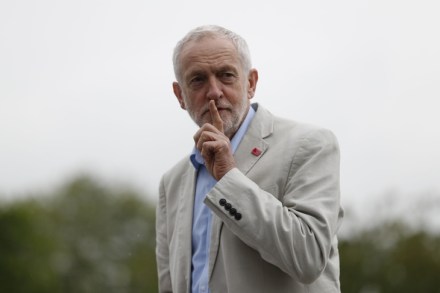Jeremy Corbyn’s road to sainthood
This week, a Sky News video has been doing the rounds on Twitter in which an exasperated Jeremy Corbyn supporter cast doubt on the row over the ongoing wreath-laying controversy by declaring that the Labour leader is a recipient of the Nobel Peace Prize. End of. https://twitter.com/Jamin2g/status/1029448470028013570 Just in case readers are in any doubt, Mr S can confirm this claim is not true. But Mr S thinks he can guess where it came from. A few months ago, Corbyn’s supporters began to rebut questions about his commitment to peace by asserting that he was a winner of the Gandhi Peace Prize. The prize is bestowed annually by the Indian



















